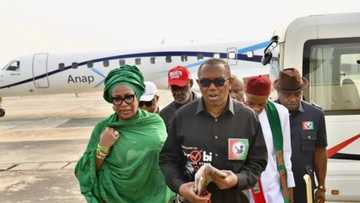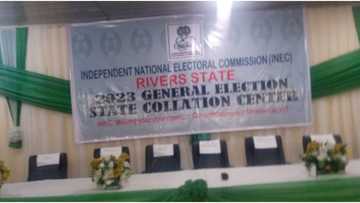Peter Obi, Kwankwaso, G-5 governors as Tinubu’s destiny helpers by Jide Ojo
The national elections (presidential, senatorial and House of Representatives) scheduled for February 25, 2023, held last Saturday. INEC accredited 229 national and foreign observers (196 national or domestic groups that collectively deployed 144,800 observers and 33 international organisations that deployed 2,113 observers) In all, 146,913 observers were deployed for the 2023 general elections.
PAY ATTENTION: Сheck out news that is picked exactly for YOU ➡️ click on “Recommended for you” and enjoy!
I was among the domestic observers. I was accredited and observed the elections under the platform of the Nigerian Women Trust Fund where we observed the polls using gender lens. I am also a Channels TV election analyst. I participated fully in the pre-election and election day observation at Abuja municipality.
My overall impression about the elections are as follows: The Independent National Electoral Commission again disappointed Nigerians with the late commencement of the polls in most of the 176,606 polling units where it deployed poll officials and materials to; the commission could not fulfil its promise of uploading the polling units results unto its Result Viewing Portal in real time; Priority voting was not accorded persons with disabilities, elderly, pregnant women and nursing mothers as stipulated in INEC’s regulations and guidelines for the elections; Many voters did not know where their polling units are given the fact that INEC had moved many voters from congested PUs to less congested centres; there was poor crowd control in many PUs with large turnout.
However, the election was largely peaceful across the country; Movement restrictions were enforced by security agents policing the election; there was less incidents of vote trading given the lack of access to cash and the proactiveness of anti-corruption agencies such as the Independent Corrupt Practices and Other Related Offences Commission and the Economic and Financial Crimes Commission; the Bimodal Voter Accreditation System device also worked optimally in most polling units where they were deployed and where they malfunctioned they were fixed or replaced.
Where elections could not hold due to threat of violence such as the 141 polling units in Yenagoa, Bayelsa State, INEC postponed the election till the following day and where there was bigger challenge of omission of party logo such as the Esan North, Esan South and Igueben federal constituency the election was rescheduled for March 11, 2023.
It needs to be understood that the election was held under huge security and economic challenges which have predictably been envisaged to impact negatively on the elections. The country has been in the throes of insurgency, banditry, kidnapping for ransom, herders /farmers conflict while the new policy of redesigned N200, N500, and N1,000 naira notes and their scarcity coupled with epileptic online banking platforms as well as fuel scarcity made the situation Herculean for INEC to seamlessly conduct the elections. However, no excuse is good enough for the sub-optimal performance of the electoral umpire for under-delivery on its promises.
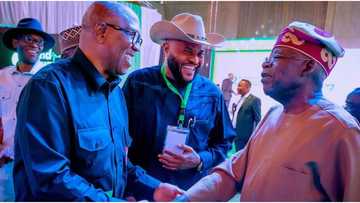
Read also
2023 election: Nigerians mock politicians with 'structure' losing to rivals with 'no structure'
My take is that notwithstanding the highlighted challenges, the elections were still held in substantial compliance with the legal framework for the polls. Yes, the election wasn’t perfect, however, save for isolated ugly incidents of disruption of polls by some miscreants in Lagos and Rivers states, the exercise went well across many states. INEC must however sanction the road transport workers who may have orchestrated the delay in commuting the poll officials and materials to the polling units.
PAY ATTENTION: Follow us on Instagram - get the most important news directly in your favourite app!
As of the time of writing this article about mid-day Tuesday, it is very clear that the All Progressives Congress presidential candidate, Asiwaju Bola Tinubu, is coasting home to victory by beating 17 other candidates to the presidential seat. The final formal declaration may likely take place today, March 1, 2023 given the slow pace of the final collation at the national level. On Monday, February, 27, 2023, few of the party agents at the Abuja National Collation Centre raised certain objections and called for the halting of the collation.
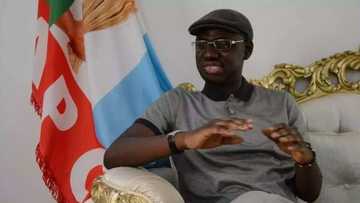
Read also
Elections: Timi Frank urges Nigerians to reject manipulated results by INEC, security agencies
Indeed, Peoples Democratic Party agent, Senator Dino Melaye, disrupted the collation procedures and eventually led a few other party agents to stage a walkout. Labour Party, PDP and former President Olusegun Obasanjo had called for the cancellation of the elections and the resignation of INEC Chairman, Prof. Mahmood Yakubu. These calls are self-serving, diversionary and unpatriotic to say the least. I dare to warn against the repeat of the June 12, 1993 episode as the military may cash in on it to truncate this democracy.
Before I discuss Tinubu’s pathway to victory, it is important to state categorically that votes do count in Nigeria. Five incumbent governors have so far lost their bid to come to the Senate. They include Governor Ben Ayade of Cross River State, Governor Darius Ishyaku of Taraba State, Governor Okezie Ikpeazu of Abia State, Governor Ifeanyi Ugwuanyi of Enugu State, and Governor Samuel Ortom of Benue State. Former governor Tanko Almakura of Nasarawa State, and ex-governor Kabiru Gaya of Kano State also lost their comeback bid to the Senate.
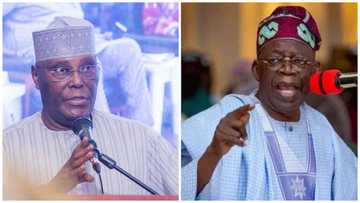
Read also
Atiku’s campaign lists states APC is plotting to manipulate votes as collation of results begins nationwide
The unthinkable also happened in Lagos where the All Progressives Congress lost to Labour Party by about 10,000 votes in a keenly contested poll. The reasons for that are fivefold as I explained on Channels TV on Monday night. The factors that gave rise to that have religious and ethnic connotations. Many Pentecostal pastors are infuriated by the Muslim-Muslim ticket of the APC standard bearer, Bola Tinubu. They therefore directed their congregants to vote for the Labour Party candidate, Peter Obi.
Obi too also utilised the religious factor to his advantage. He went to many of the highly populated Pentecostal churches to seek endorsement of their General Overseers. He equally revved up the Igbo sentiments with his kith and kin in Lagos ahead of the poll. He held a couple of mega rallies and even went on vote drive to Alaba International Market, Ladipo Market and such other places where there is a huge Igbo population in Lagos to campaign. The Igbo in Lagos also mobilised fully to support him believing that doing so will facilitate his path to historic victory.
Recall that Tinubu did not get the endorsement of Afenifere which is the Pan-Yoruba socio-cultural group in the South-West. In fact, Pa Ayo Adebanjo and ex-President Olusegun Obasanjo openly endorsed and campaigned for Peter Obi. Tinubu’s successful political dynasty rankled many of the Yoruba elders and they wanted to end his thriving political career by staging another “O to ge” revolution against him in Lagos as they did to the Saraki political dynasty in Kwara State in 2019.
Another thing that worked against APC and Tinubu in Lagos was the #EndSARS protests of October 2020 when dozens of Lagosians were allegedly killed, especially at the Lekki Tollgate on October 20, 2020. Lagos youths fingered Tinubu as bourgeoisie and indeed burnt down his media station, TV Continental.
Youths of Lagos felt that by voting against Tinubu, they are taking back Nigeria from her oppressors. To break the camel’s back, the excruciating pains inflicted on Lagosians by fuel scarcity and cash crunch added petrol to fire making APC and its presidential flagbearer to be an unpopular choice at the poll.
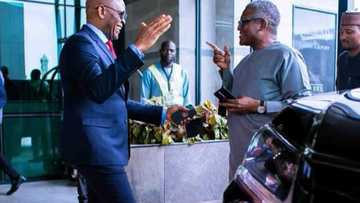
Read also
In pictures: Nigerian billionaires and CEOs voting for their preferred candidate in 2023 election
We all pray for destiny helpers and Peter Obi, Musa Kwankwaso and the G-5 governors of the PDP happen to be the destiny helpers to the realisation of Tinubu’s presidential ambition. Recall that these people are members of the PDP family before the 2023 party primaries.
Obi resigned from PDP and joined Labour Party in May 2022 ahead of the presidential primary of PDP; Kwankwaso similarly did and pitched his tent with the New Nigeria Peoples Party, governors Seyi Makinde of Oyo State, Okezie Ikpeazu of Abia State, Ifeanyi Ugwuanyi of Enugu State, Samuel Ortom of Benue State and Nyesom Wike of Rivers State did not leave PDP but called for the resignation of the party’s national chairman, Dr. Iyorcha Ayu and when he refused to heed the call, they promised to work against the presidential ambition of former Vice President Atiku Abubakar.
As the saying goes, a house divided against itself cannot stand. PDP was in disarray ahead of the 2023 polls the same way the party was ahead of the 2015 general elections. A summation of Atiku, Obi and Kwankwaso’s votes will tell a discerning mind who would have won the presidential election were they all united in PDP. Tinubu should find a way of compensating these destiny helpers after his inauguration as President on May 29, 2023.

Read also
2023 elections: Fresh real-time data scores INEC low, records 40 critical incidents across 36 states
Twitter: @jideojong
Source: Legit.ng

